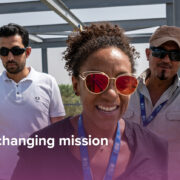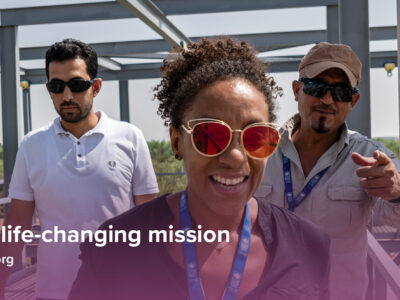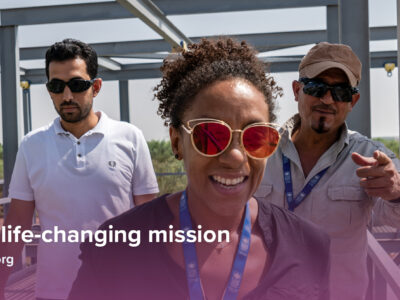UN Women, grounded in the vision of equality enshrined in the Charter of the United Nations, works for the elimination of discrimination against women and girls; the empowerment of women; and the achievement of equality between women and men as partners and beneficiaries of development, human rights, humanitarian action and peace and security. Placing women’s rights at the centre of all its efforts, UN Women leads and coordinates the efforts of the United Nations system to ensure that commitments on gender equality and gender mainstreaming translate into action throughout the world. UN Women provides strong and coherent leadership in support of Member States’ priorities and efforts, building effective partnerships with civil society and other relevant actors.
UN Women South Africa Multi-Country Office (SAMCO) is based in Pretoria, South Africa and serves five countries: South Africa, Botswana, Lesotho, Namibia, and ESwatini.
In partnership with the Presidency of South Africa, UN Women SAMCO has been supporting efforts to accelerate the momentum and new commitments to gender equality and women’s economic empowerment. This collaboration was established with the aim of enabling South Africa to leverage its voice and influence on the advancement of economic rights and justice of women, in the context of South Africa’s leadership role in two respects: first, its Chairship of the African Union (AU) (in the period February 2020 – February 2021) and secondly, its co-leadership of the Economic Justice and Rights (EJR) Action Coalition within the Generation Equality Forum (GEF). One of South Africa’s key advocacy positions within the GEF EJR is to achieve the increased adoption of policy reforms and practices that improve access to productive assets for African women in the informal, MSE sector (micro and small enterprises) and agri-business sectors. This advocacy position intersects with the 10 action areas President Ramaphosa identified where game changing results for women’s economic inclusion must be delivered, in Africa and globally. Achieving this outcome will require the mobilization of partners to commit to building the productive assets of women in the margins (i.e., in the informal sector, MSEs) and those in agri-business and who own medium-sized businesses. Catalysing the game-changing and structural economic reforms envisaged requires prioritizing productive assets, including financial, digital and property assets. Specifically, the critical output being advocated for within the GEF context is a reduction of the gender gap in women’s financial inclusion from 9% to 6% through increasing both formal and informal financial inclusion and increasing the number of women’s economic empowerment national programs that integrate digital financial services.
It is in this context, of these priorities and the cooperation between the Presidency and UN Women SAMCO, that the services of an expert Consultant/s are required. Broadly speaking, this consultancy is expected to ultimately contribute to the following key tangible measures, that will be key to building productive financial, digital and property assets to reduce the gender gap in financial inclusion:
- Roll-out digital ID’s to facilitate participation in the mainstream economy and financial services, including ID’s and documentation for migrants. In the short term, this will primarily entail advocacy for the adoption of digital national ID systems (including policies and regulations that foster the development of innovative digital financial services). This short-term action will be a building up to the long-term vision to leverage digital IDs in order to foster digital financial innovation;
- Increasing access to financial services and remove barriers e.g., by lowering usage costs and making finance accessible for poor women and women owned enterprises, particularly medium sized enterprises which have been identified as having inadequate access to financing mechanisms;
- Repeal laws that limit women’s ownership of land and other productive assets.
Objectives of the assignment:
Given the expected areas/ outputs this consultancy is expected to contribute, the main objective of this assignment is as follows:
- First, to conduct research that provides a comprehensive mapping of the current state of play across African countries on Digital IDs, with particular emphasis on the status quo in terms of policy and regulatory measures in place, barriers that women confront, opportunities in place to facilitate ease of access, levels of success attained through these opportunities/ measures, and good emerging practices being applied by different African countries;
- Secondly, to develop a set of guidelines for a comprehensive integrated national identification system that conforms to good global practices with respect to digitization, use of biometrics, and protection of personally identifiable information, and also adapted for regional context;
- Provide recommendations on the policy and advocacy requirements that will contribute to strengthening access to digital IDs;
- A model Digital ID policy framework that builds on identified established good practices and that could be used (and customized) within different country and regional contexts.
SCOPE OF THE WORK:
The Consultant/s will conduct research and produce a comprehensive report on the state of play of digital IDs in Africa. The research is expected to be conducted through an analysis of qualitative and quantitative analysis of key issues within the context of expanding women’s economic inclusion through the acceleration of access digital inclusion through policy, regulatory and institutional measures. In addition to establishing a research methodology and work-plan, the Consultant/s will be expected to provide regular updates, engage with key relevant stakeholders in the course of conducting the research. Based on the research findings, the Consultant/s will produce a comprehensive report, key recommendations, a set of guidelines and model policy framework. Finally, the Consultant/s will be expected to provide bespoke technical guidance/ expertise to the Presidency and the AU Gender Unit on the development of a Digital IDs strategy for Africa.











Comments